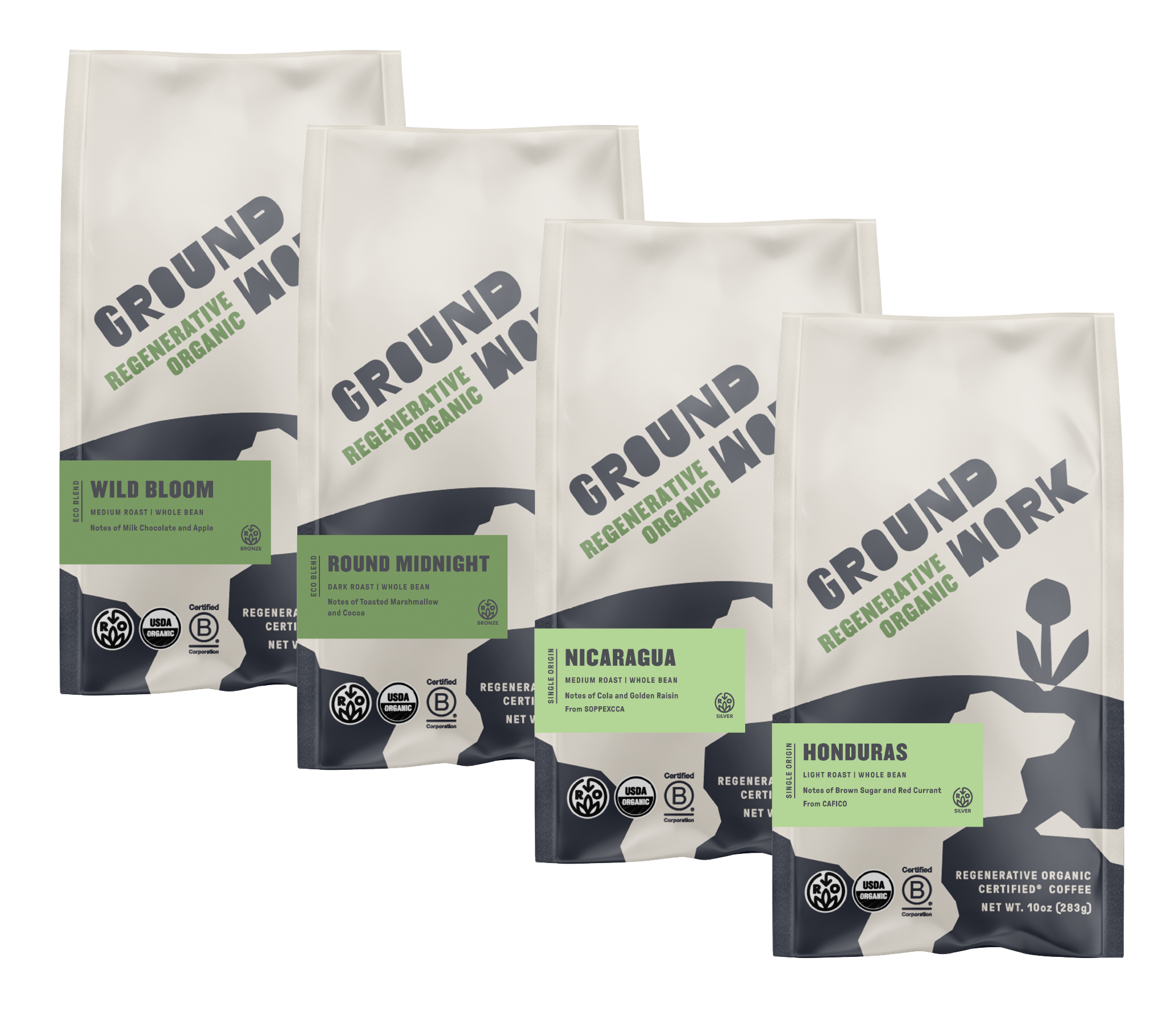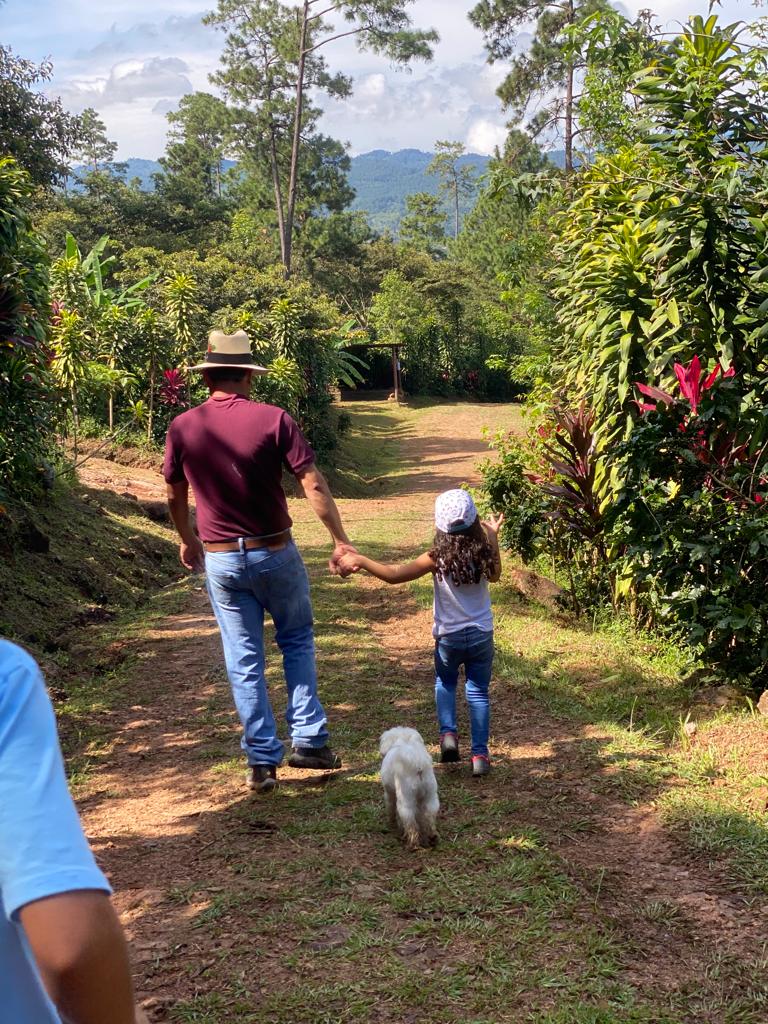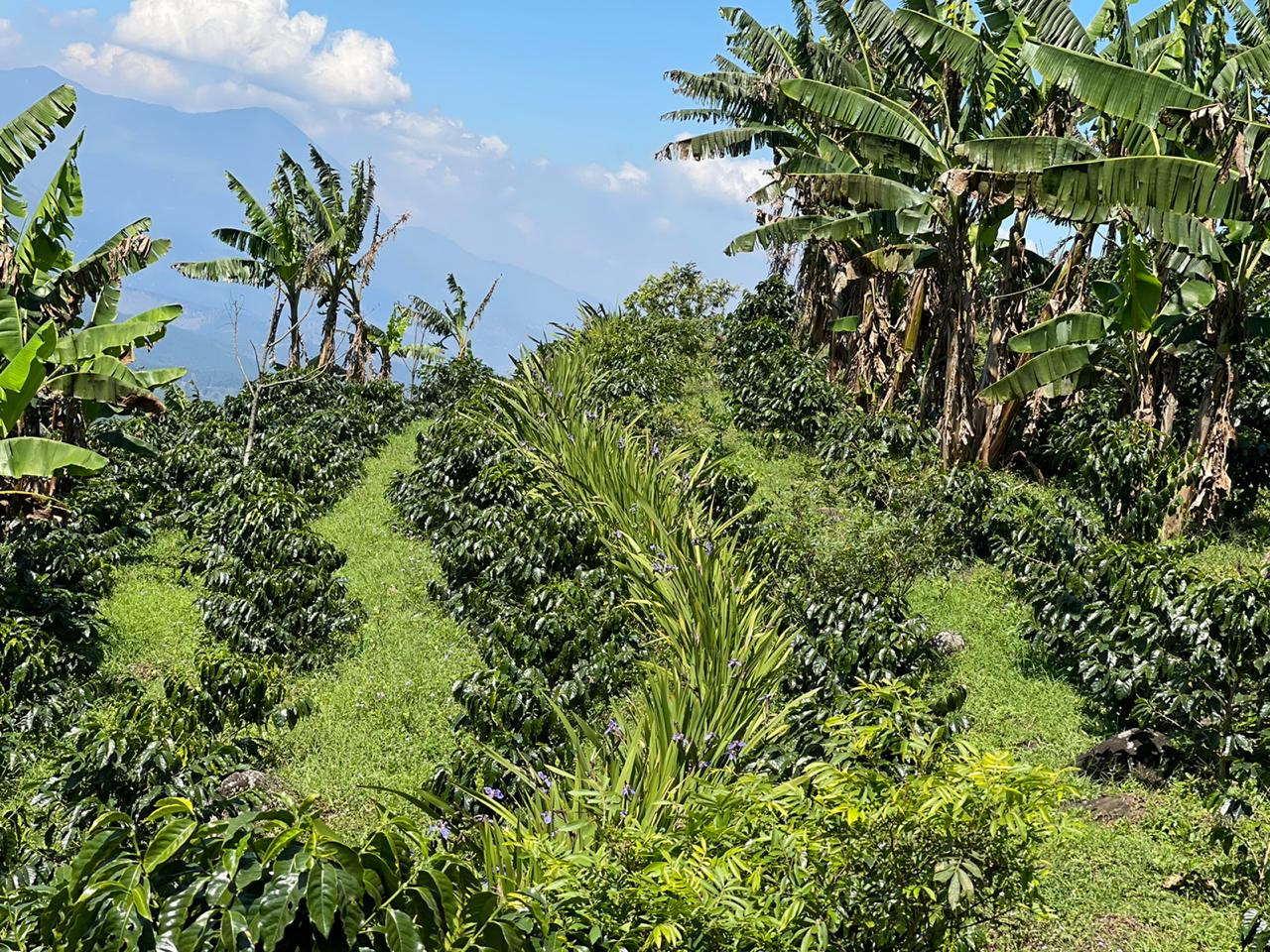Now that “sustainability” isn’t enough, we’re proving that Regenerative Organic agriculture provides hope for the future
For decades, Groundwork has championed the organic movement. While roaming the world and visiting scores of coffee farms to find certified Organic coffees that meet our high-quality standards, it became apparent that being certified Organic wasn’t enough.
“I saw farms that were certified Organic but who were ignoring the impact on their local environment their farming activities were having by – for example – releasing their coffee processing water into a local stream and creating algae blooms that were killing local fish populations,” says Jeff Chean, Groundwork’s co-founder and Chief Coffee Guy. Something was clearly missing from the standards for Organic certification.
In his acceptance speech for the 2018 Santa Monica Chamber of Commerce Sustainability Award and Economic Development Award, Jeff explained why Groundwork takes the stance that environmental “sustainability” isn’t enough and why Organic certification standards need to be re-evaluated:
“Sustainability can be a slippery word. At its most basic, it means the ability to sustain, to keep the status quo…The status quo, as I see it, is akin to a free climber on the face of a cliff with his/her fingers jammed into a niche, hanging on for dear life. So that situation, clearly, isn’t one that makes sense to sustain. Building a system that preserves an unsustainable situation isn’t enough and doesn’t make sense. We need something to reverse the damage we’ve done and to restore the land’s health and the water table. Now is the time to create a restorative wave of effort.” 
In 2022, Groundwork became the world’s first coffee roasting company to be certified by the Regenerative Organic Alliance, and shortly after, we launched our first Regenerative Organic Certified (ROC) coffee. We feel that the Regenerative Organic movement is critical for the long-term viability of our planet, and we are quickly expanding our commitment to the movement. We recently released four new ROC coffees – a single origin from both CAFICO in Honduras and SOPPEXCCA in Nicaragua, plus dark and medium roast blends of the two origins, plus ROC coffee from Finca Churupampa in Peru (that will be released as a single origin soon, too!) – because the farmers growing these coffees practice farming that doesn’t perpetuate agricultural practices that degrade their environment and climate, but rather help rehabilitate it.
For Groundwork, helping pioneer the ROC coffee movement is about extending the pillars of Organic and B Corp that we already practice, CEO Eddy Cola explains.
“[ROC] is a way for us to share with the customer through a certification the things that we really care about: environment, people, and the planet,” Eddy says.
Groundwork has been steadfast in its efforts for environmental and social change since we roasted our first batch of coffee in the 90s. But since then, we have watched climate change barrage farmers with an exhausting and seemingly futile fight to sustain their farms. However, since regenerative agricultural methods work not against a warming climate but rather in concert with nature, farmers and coffee buyers alike are increasingly optimistic about the future of agriculture.

CAFICO farmer and daughter walking through their regenerative farm in Honduras
“Regenerative agriculture is the most hopeful way to reduce climate change,” Eddy says.
Regenerative agriculture is already providing widespread hope because, like Organic certification, ROC can be applied to many industries—from Dr. Bronner’s soap and food to Patagonia clothing and gear.
“Regenerative farming really brings everyone together. It’s not just coffee – we’re able to share with people in a bigger way,” Eddy says.
We are excited to witness the growing enthusiasm around ROC on a larger scale and we are proud to be at the forefront of ROC coffee. As always, we put our money where our mouth is and buy full containers of ROC coffee from our cooperative partners in Honduras and Nicaragua (not just spot purchases or split containers just to say we did). The financial risk that comes with these large purchases is a fair price to pay to best support farmers in their dedication to ROC coffee.
“It’s not a marketing play for us – this is a life play, a commitment to try to reverse the damage that we’ve done, and make the world a better place for future generations” Jeff says.
Stay tuned for in-depth profiles on our ROC cooperative partners on the blog soon!

One of CAFICO's regenerative coffee farms in Honduras
Written by
Melina Devoney
Barista & Blogger